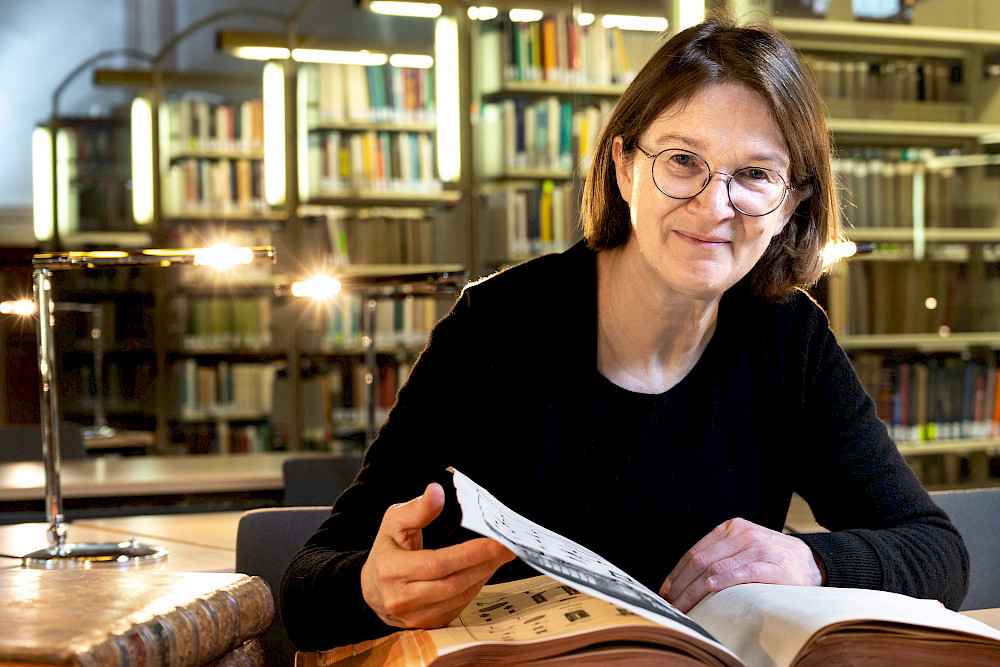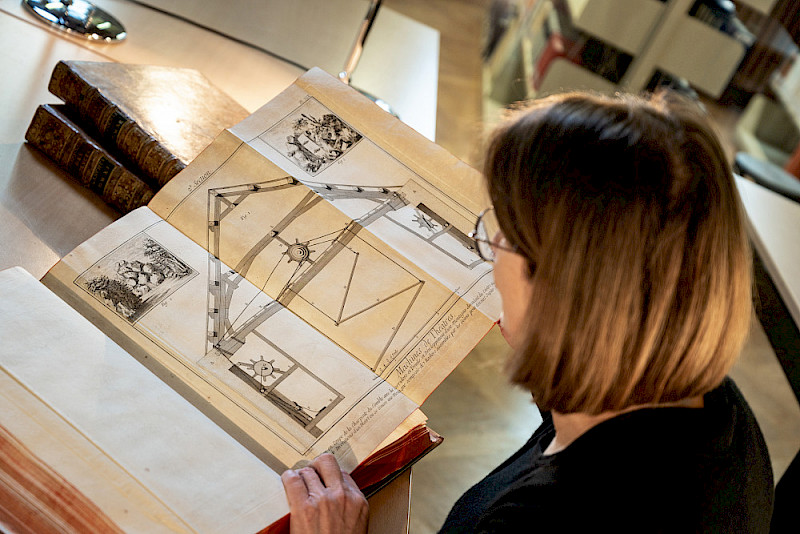Enlightenment, power and truth

On the first day of his second term in office, US President Donald Trump signed several far-reaching executive orders. He wants to withdraw the US from the Paris climate agreement and end ist membership of the World Health Organisation. The new president has also had an information page on abortion, placed online by the previous administration, removed from the internet. “His political opponents consider Trump to be a representative of the anti-Enlightenment,” Professor Elisabeth Décultot says. “ His most recent decisions certainly do not suggest that he would like to revise this image.”
Elisabeth Décultot is a professor of “Modern written culture and European knowledge transfer” at MLU and director of the IZEA. “When we talk about the European Enlightenment, we usually think of Hume, Kant, Rousseau or Voltaire,” she says. “It goes without saying that we study these philosophical classics, especially as the City of Halle, as the cradle of the early Enlightenment, is the ideal place to do so. However, our research approach has a significantly broader base and focuses on the relationship between the Enlightenment and politics – not only in past eras, but explicitly also in the present.”
What, for example, do politicians refer to when they invoke the ideals of the Enlightenment? In 2021, the German chancellor at this time Angela Merkel declared in the Bundestag that she believed in the “power of Enlightenment”. French President Emmanuel Macron repeatedly invokes the defence of the “spirit of Enlightenment”. “Critical scholarship must investigate which interpretation of the concept of Enlightenment underlies these political statements,” Décultot says. Looking back, we see that this interpretation has changed and is often guided by vested interests. Critical voices even see the philosophy of Enlightenment as a product of a Eurocentrism, which has favoured Western colonialism and racism.

The new Research Training Group (RTG) “Politics of the Enlightenment”, which will receive five million euros in funding from the DFG in the first phase, is also dedicated to such questions. The RTG brings together 18 doctoral projects dealing with the history of the Enlightenment and ist relationship to politics. The research in the RTG is broad-ranging and covers literature, German studies, comparative literature, English studies, political science, philosophy, and history. The MLU and the IZEA provide an excellent environment for this ambitious programme: Research on the Enlightenment at the IZEA has a long tradition and is highly regarded internationally. “We have succeeded in attracting young researchers with great potential. Among others, they come from the USA, China, Morocco, and Switzerland, impressively highlighting the international character of the Research Training Group,” Décultot explains.
In recent decades, the relationship between the Enlightenment and Europe and the non-European world has been the subject of heated debate: Is the Enlightenment exclusively a European or even a Eurocentric phenomenon? Some of the projects will also address this question, for example by looking at China. “There, Enlightenment refers to a movement that developed in the first half of the 20th century,” Décultot says. “The genealogical relationship of this movement to Chinese and older European traditions is the subject of heated debate. Therefore, it will be fascinating to uncover the relationships, demarcations and parallels here.”
The Research Training Group is also investigating the extent to which social media channels contribute to the Enlightenment in Arab countries and how those in political power succeed in controlling the dissemination of information and knowledge. Elisabeth Décultot: “In the long term, restrictions or even bans will not be successful. At the same time, free access to information requires people to be educated comprehensively and to be equipped with the skills needed to recognise manipulation and to distinguish opinions from truth.” The RTG’s research is also intended to contribute to this.
The IZEA
The Interdisciplinary Centre for European Enlightenment Studies, or IZEA for short, is a research institute at MLU that studies the basic principles of modern Western societies through ideas and cultural patterns developed in the 18th century. Thanks to its outstanding research, its library with around 20 000 original works from the 18th century, and its proximity to important historical locations of the Enlightenment, the IZEA is now one of the most internationally renowned research institutes on the Enlightenment and a port of call for researchers from all over the world.
